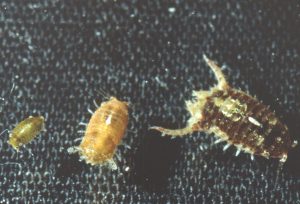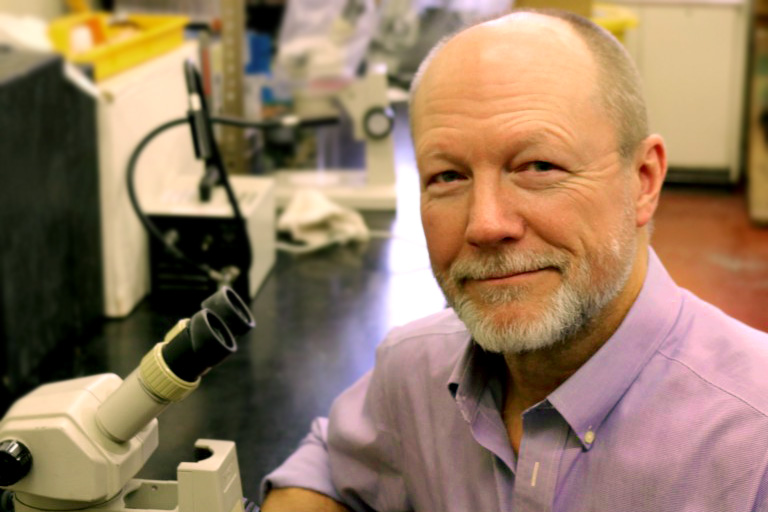By Carly Banks
NAU Communications
While most people grow up reading “The Adventures of Huckleberry Finn” and “Harry Potter,” Stephen M. Shuster grew up reading Science—the largest peer-reviewed general science journal in the world. After more than 40 years of religiously reading the publication every week, in the “News & Notes” section of the Nov. 24 issue, Shuster read something he didn’t think he’d ever see in the esteemed journal—his own name.
A professor of invertebrate zoology and curator of the museum of marine invertebrates and mollusks at Northern Arizona University, Shuster was recently named an American Association for the Advancement of Science (AAAS) Fellow, joining the elite few in NAU’s history who have been granted this distinction.
The scientific society AAAS, publisher of the journal Science, was founded in 1848. Election as a fellow is an honor bestowed upon members by their peers for meritorious efforts to advance science or its applications. This year, 396 fellows from universities throughout the world are being added to the list.
Shuster’s peers recognized him for “distinguished contributions to the fields of invertebrate zoology, mating system and sexual selection research, and for undergraduate science education and communicating science to the public.”
Shuster began studying evolutionary biology of invertebrate animals at the University of Michigan as an undergraduate in the 1970s. After earning a master’s in biology at the University of New Mexico and a Ph.D. in zoology at Berkeley, co-authoring more than 10 papers and publications and writing several books, Shuster applied for his dream job—a faculty position for an invertebrate zoologist at NAU, which specified the need for a researcher to work in the Gulf of California studying marine invertebrates who also was interested in teaching field courses in invertebrate zoology, parasitology, evolution and animal behavior.
“This advertisement described my research and teaching interests almost exactly! I was interviewing at other universities at the time but found I was attracted to the fact that several internationally known scientists were part of the NAU biology faculty and seemed to be thriving there,” Shuster said. “If hired, I would become one of five faculty recruited to stimulate new research at NAU, and I liked the idea of belonging to such a cohort.”
He was hired.
More than 28 years later, three of the five individuals that made up the cohort when Shuster landed the job in 1989 are still at NAU today and have become close friends and occasional collaborators.

Shuster realizes that like all scientific leaders, AAAS Fellows have a responsibility to show everyone that science is not a threat, but rather a great equalizer of humanity, especially in what he calls a crucial time for science and scientists.
“As a member and participant in the American Association for the Advancement of Science for nearly 40 years, I am truly honored to be recognized as a fellow within this country’s oldest scientific society,” Shuster said. “I do not take this recognition lightly and will do my part. By consciously striving to eliminate bias, promoting honesty, requiring verifiability and seeking the simplest possible explanations for all physical phenomena, I believe science can make the world a better place, and I want to help make that happen.”
Current NAU faculty who have been honored with this distinction include Paul Keim, Regents’ Professor of Microbiology, who was named an AAAS Fellow in 2015 for his work in microbiology, evolution, genetics and anthrax, and Thomas Whitham, NAU Regents’ Professor of Biology, who was named an AAAS Fellow in 2011 for his research in ecological sciences.



